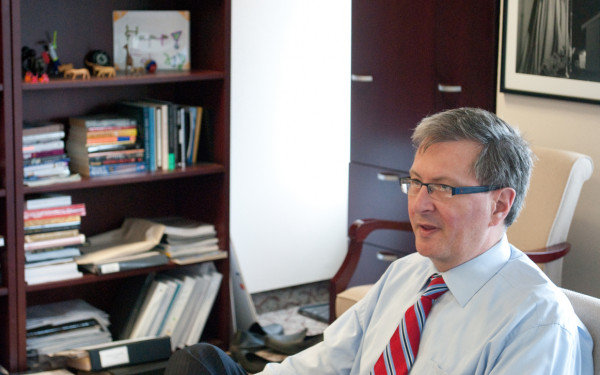Sitting on the Senate
The Senate, Concordia’s highest academic governing body, met last Friday in what may have been the shortest meeting in the body’s 30-some-year history. Here’s hoping the student union can learn from their friends down the street.
And the Winners Are…
Just two days before the senate meeting, the Concordia Student Union met to fill the vacant Senate spots. The following five undergraduate students will join Simon-Pierre Lauzon, Chad Walcott, Charlie Brenchley, Bella Giancotta and Rami Khoriaty on the university senate for this academic year:
Hassan Abdullah: The only senator to stem from the same political lineage as the current CSU executive, Abdullahi was VP Loyola and Advocacy for the 2010-2011 CSU.
Mel Hotchkiss: Hotchkiss is best known as the defeated presidential hopeful from the most recent CSU election, but boasts a pretty extensive university political history. A Senate and CSU Council veteran, Hotchkiss has established herself as a union bylaw and regulation expert.
Wendy Kraus-Heitmann: Practically a Concordia institution at this point, you may know Kraus-Heitmann through her Twitter (@MsWendyKH). But you probably don’t know that she’s a former Linkie—the paper’s News Editor in 2003-04.
Gene Morrow: A returning senator, Morrow’s a man with a proclivity for eloquence. He’s a little more of an activist than a politician—so don’t be surprised if he occasionally veers from the official CSU stance.
Chuck Wilson: One part snark, two parts beard, Chuck
Wilson (@squarebracket) ran with Hotchkiss against the current CSU. He’s also got some Senate and council experience, not to mention holding the title of VP Finance of the Engineering and Computer Science Association.
Empty Seat: Despite a six-hour meeting dedicated pretty much exclusively to appointments, there is still one spot left on the Senate.
The official statement is that anyone could take the seat, but a few students have voiced concerns that the spot should go to a John Molson School of Business student—the only faculty not yet represented on the body.
Senate Gets Some Teeth
When Concordia’s Board of Governors voted to adopt all recommendations from the summer’s External Governance Committee Report, they willingly sacrificed some of their own power.
One of the recommendations suggested that the current hierarchy, which gave the BoG veto power, needed to be splintered in a bicameral system, giving Senate more authority to even the playing field.
Friday, Senate overwhelmingly supported a motion that would require the two bodies meet should the Board try to overturn a Senate decision.
CSU President Schubert Laforest was optimistic about the decision.
“It now gives Senate the teeth it needs,” he said to The Link.
Morrow raised concerns that the motion itself was not enough to achieve true bicameralism, as the BoG could still veto Senate. While he eventually withdrew a suggested amendment requiring both bodies consent in overturning a decision, he only did so under the agreement that Senate’s steering committee would meet to discuss their options.
Morrow’s proposal was met with some concerns that achieving this would require opening up the university’s charter, a process that involves the provincial arm of the National Assembly.
This same issue was brought up in January, when then-CSU president Lex Gill suggested that opening up the charter was the only realistic way to achieve bicameralism.
“There’s a group of people who say, ‘Do we really want the charter opened up in front of the National Assembly so that the Quebec government can decide what an English university should look like and how it should be governed?’” she said in a past interview with The Link.
“The university needs to find a bit of courage, think about the process carefully, develop a draft, create committees and deal with it.”

_900_692_90.jpg)




_600_375_90_s_c1.jpg)
